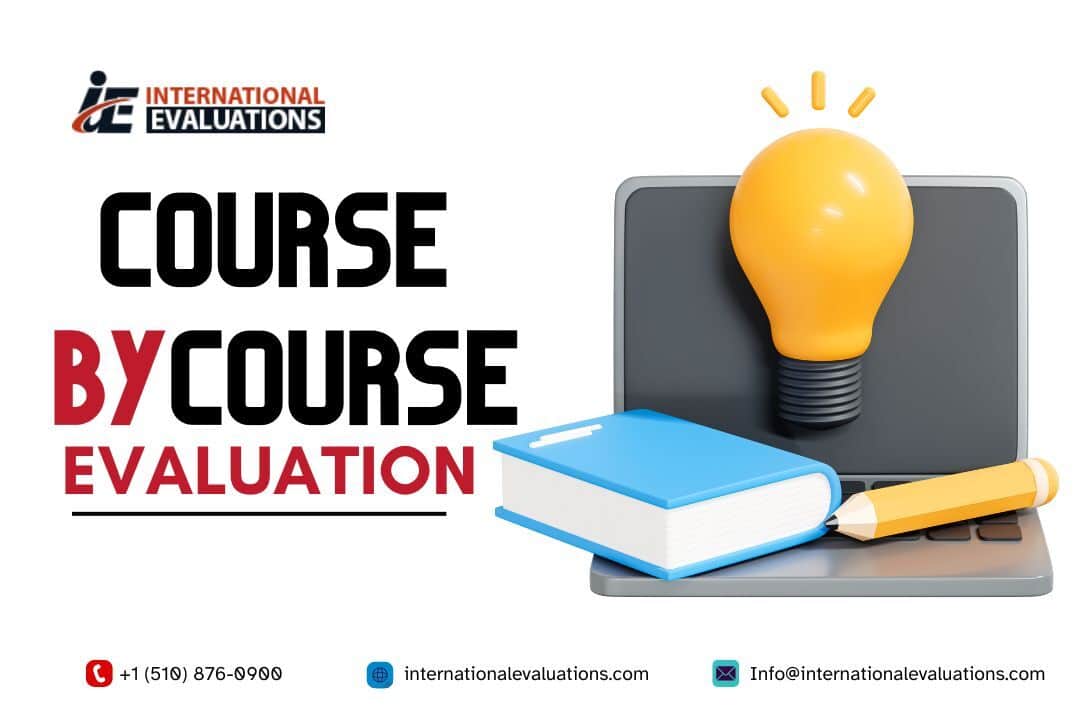Introduction
In today's competitive job market, the transition from class learning to real-world application is more essential than ever. Students and professionals alike are seeking ways to translate their work experiences into academic credits. This article explores the intricate procedure of examining work experience for education credit, highlighting its significance in personal and expert development.
As we look into this subject, we will go over various aspects of academic credential examination, worldwide credential examination services, course-by-course credential evaluation, and how they connect to work experience assessment. Furthermore, we'll explore expert viewpoint letters and service plan evaluations as part of this complex journey.

From Classroom to Career: Evaluating Work Experience for Education Credit
The bridge between classroom education and profession success often includes acknowledging the worth of practical experience. Numerous students build up considerable work experience throughout internships or part-time tasks that may not be officially acknowledged by universities. However how can one make sure that these experiences count towards their scholastic credentials?

Why Examine Work Experience?
Evaluating work experience is essential for numerous reasons:
Recognition of Skills: It verifies the abilities gotten through hands-on experiences. Enhanced Employability: Employers significantly look for candidates with practical knowledge alongside formal education. Personal Growth: Recommendation of past experiences increases confidence and motivates lifelong learning.Types of Credential Evaluation
Understanding the different types of credential examinations offered can help people navigate this procedure effectively.
Academic Credential Evaluation
Academic credential assessment examines foreign academic credentials against developed requirements in another country. This process is essential for global students or employees aiming to prove their educational background.
International Credential Evaluation Services
These services focus on examining https://messiahktom164.theburnward.com/debunking-academic-credential-evaluations-a-comprehensive-guide-to-international-and-course-by-course-solutions foreign credentials and determining their equivalency in the host nation's academic system. They provide reports that detail the level and type of education got abroad.
Course-by-Course Credential Evaluation
This in-depth analysis breaks down each course taken throughout a degree program, offering insights into grades made and credit hours completed. It's particularly helpful for trainees looking to move credits in between institutions.
Work Experience Evaluation
Work experience examination functions as a method to formally assess non-academic skills gotten through work or volunteer activities. Here's how it works:
Documentation: Individuals must collect documentation such as job descriptions, performance reviews, and any appropriate certifications. Comparative Analysis: The critic compares this details versus established academic competencies. Outcome: The result may cause academic credits awarded based on shown knowledge and skills.The Role of Specialist Opinion Letters
A professional viewpoint letter can boost your case when seeking credit for work experience. These letters normally originate from market specialists who can vouch for your abilities and contributions in a specific field.
What Must a Professional Viewpoint Letter Include?
- An overview of your role in the organization Specific abilities you developed How your experiences associate with scholastic outcomes
Having a specialist endorse your capabilities not just provides trustworthiness however likewise enhances your total portfolio when getting sophisticated studies or positions.
Business Plan Examination as a Learning Tool
Creating a company plan can be an exceptional way to display your understanding of theoretical concepts used in real-world circumstances. A comprehensive examination of an organization plan may highlight competencies such as tactical thinking, financial preparation, and market analysis.
FAQs
1. What types of work experiences qualify for scholastic credit?
Typically, work experiences that straight relate to your discipline or show transferable abilities are qualified for academic credit.
2. How do I discover worldwide credential evaluation services?
You can browse online directory sites or speak with universities that typically have collaborations with respectable credential evaluators.
3. Exists a charge associated with getting an expert viewpoint letter?
Yes, many specialists charge for their time invested writing these letters; however, some might offer them pro bono depending on the situation.
4. Can I get credit for overdue internships?
Absolutely! Unsettled internships frequently supply important experience and can be evaluated likewise to paid positions.
5. How long does the credential evaluation procedure take?
The timeline varies based on the service utilized however generally ranges from a couple of weeks to a number of months.
6. Are there particular documents needed for course-by-course evaluations?
Yes, you will need records from all post-secondary institutions participated in, in addition to detailed course descriptions when possible.
Conclusion
Transitioning from class knowledge to profession preparedness requires recognizing the importance of practical work experiences in education credit examinations. As we have explored in "From Class to Profession: Evaluating Work Experience for Education Credit," both trainees and specialists stand to acquire significantly by leveraging their real-world experiences towards their scholastic goals.
By using various kinds of examinations-- be it through scholastic credential examinations or expert viewpoint letters-- people can improve their qualifications while promoting lifelong learning principles that adhere carefully to today's dynamic workforce demands.
In summary, embracing both theoretical knowledge from class along with experiential knowing gotten through professional engagements develops well-rounded prospects ready to tackle the difficulties ahead in their careers.